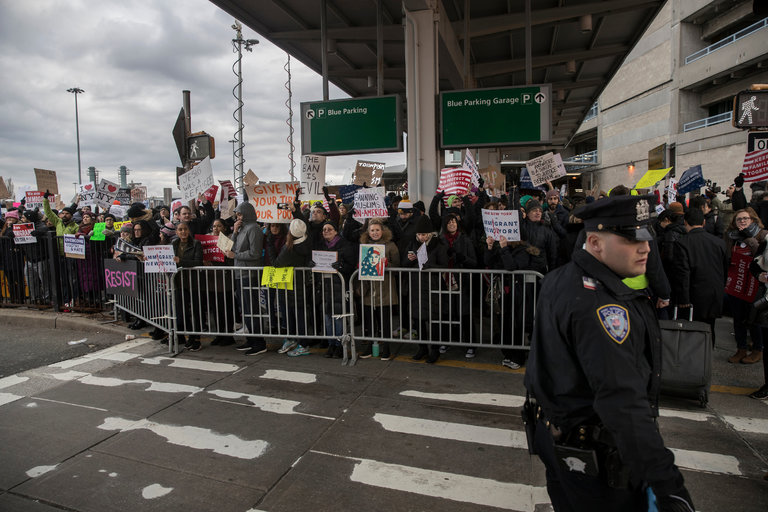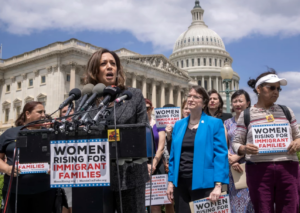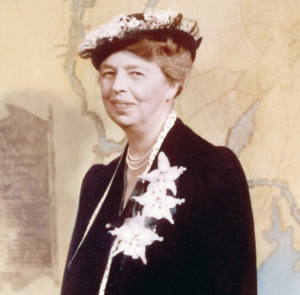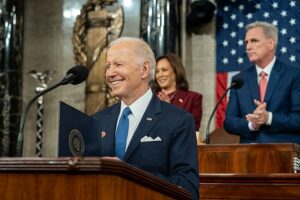BLOCKED Muslim Ban 2.0

The author, Ionut Gitan, with his makeshift sign at JFK airport, snapped by a photographer at New York Times | Photo courtesy Victor J. Blue/NYT
 The author, Ionut Gitan, with his makeshift sign at JFK airport, snapped by a photographer at New York Times | Photo courtesy Victor J. Blue/NYT
The author, Ionut Gitan, with his makeshift sign at JFK airport, snapped by a photographer at New York Times | Photo courtesy Victor J. Blue/NYT
A question repeated in my head: How could this happen in the United States?
Early morning, on January 28, I read the news of President Trump’s executive order on immigration. The order banned travel from seven predominately Muslim countries, blocked legal permanent residents with green cards from entering the US, barred all refugees for 120 days and Syrian civil war refugees indefinitely.
My family immigrated to the United States from Romania through a refugee camp in Greece like many refugees today. In this executive order, I saw my own family banned with the Syrians. We shared their struggle.
I left my apartment to escape my thoughts. I walked through Greenpoint, a Polish community in Brooklyn. Heading down Manhattan Avenue to a favorite donut shop, I thumbed the Twitter feed on my mobile phone when a Tweet from the ACLU gripped me, “We’re en route to join the protest at JFK Terminal 4.”
I stopped in my path, and reversed direction to the nearest convenience store. I purchased a permanent marker and poster board. With my makeshift sign in hand, I hailed a taxi to join the protest at JFK Terminal 4. In the car, the driver and I made small talk about our similar journeys to the United States: he, a Muslim from Pakistan, and I, an Orthodox Christian from Romania. Both our families, coincidently, settled to the United States through Michigan. We talked about our shared difficulties from language to work and making-the-rent in New York. As the car crept closer to the terminal growing with protests, I clutched my sign.
Today, President Trump intended for his revised executive order to take effect. But late yesterday evening, a federal judge in Hawaii blocked the order nationwide. The judge rightly dealt President Trump his second defeat.
There is little difference in the revised order from the first. While Iraq — our partner in the war against ISIS — has been removed from the list of banned countries, the order still stops individuals from entering the US for the next 90 days unless they already have green cards or valid visas, if they are from the Muslim-majority countries of Syria, Iran, Libya, Somalia, Sudan, and Yemen. It suspends refugees from entering for 120 days. It cuts the cap for Syrian refugees to enter the country each year by more than half, from 110,000 to 50,000.
The executive order curbs our moral authority in the world, emboldens terrorism, discredits our judicial system, and abuses executive power. It promotes an intolerant view of Islam that targets the vulnerable while undermining our own security. Under President Trump’s order, the United States is less safe and less free.
It is unjust to target Syrians on the lie that refugees pose a unique security threat to the United States. They do not. Refugees flee war and extremism. They move to the United States to escape terrorism, not support it. Syrians already undergo an ‘extreme’ vetting process that takes more than two years. Once here, refugees do not promote terrorism. Instead, they open businesses, raise families, and revive communities from Vermont and New York, to Pennsylvania and Michigan.
The revised executive order denies refuge to the most vulnerable people in the world. Since the onset of the Syrian civil war, according to a February 2016 report, 470,000 people have died, 4.8 million people have fled to neighboring countries while 6.6 million remain internally displaced, and 1 million more requested asylum to Europe. It is one of the greatest humanitarian crises since World War II.
It is within the United States’ ability to lend a hand by accepting more refugees. Across the country, compassionate Americans have opened their doors to help Syrian refugees. As a country built on a strong heritage of religious tolerance, moral duty commands the country to do so. At this moment, the United States stands on a hill with the eyes of the world upon it.
Moreover, this executive order is not the solution to the country’s immigration problems. The solution is not within the power of President Trump’s pen. It is only in the hands of Congress. Immigration reform is a political challenge for Congress. Lawmakers need to rewrite immigration law to upgrade the legal guest worker program, provide legal aid to protect immigrants’ constitutional rights, expedite the asylum application process, and raise the cap for refugees fleeing war.
But while Congress lags on immigration reform, lawmakers need to first reject the revised executive order. Many Democrats already have. Republicans need to set aside party politics and join them. Both need to support our federal judges as a check against executive power.
Americans need to continue to make their voices heard by calling their elected officials as a habit, voting in the 2018 midterm election (or better yet, running for office themselves), and marching on the streets to resist hatred.
Arriving at JFK Terminal 4, I exited the taxi. Walking with unease past the police officers to join the protesting crowd, I paused at the strong language of my sign: “THE BAN IS EVIL.” In urgency, I wrote the message out of instinct.
Have I ever readily used that word before? That word — evil. It is far outside my Midwestern vocabulary. That word suggests biblical harm. To use it is unreal.
But now, my judgment is unchanged.
Ionut Gitan is a Master of Arts degree candidate in International Politics & Business at New York University’s Graduate School of Arts & Science and Stern Business School. His professional experience includes work in fashion business and public relations between New York City and Tokyo. In his spare time, Ionut enjoys live music, design, and independent book publishing. (http://www.ionutgitan.com)






